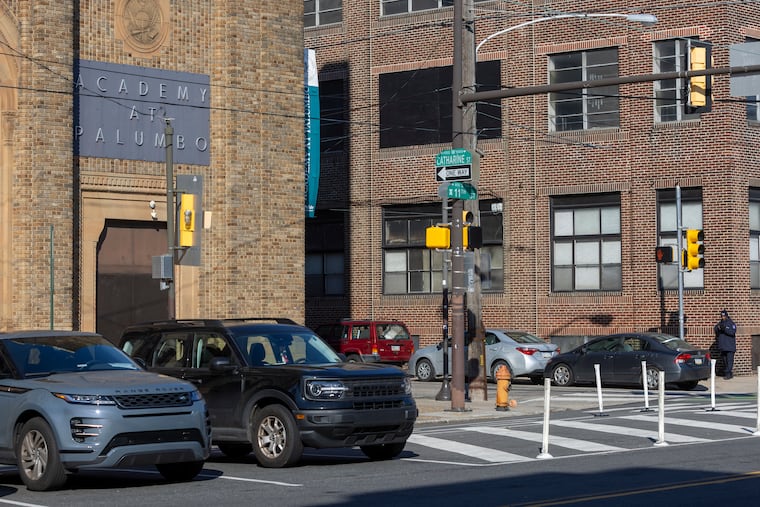A lawsuit alleging the Philly School District’s special admissions policy was race-based has been dismissed
There is no suggestion of “any intention to impose racial quotas in the admissions process,” a federal judge found. Three Philadelphia parents had sought a trial.

A federal judge has moved to dismiss a lawsuit claiming that the Philadelphia School District’s special-admissions school policy is unconstitutional.
The suit, filed in 2022 by three parents whose children were denied admission to their top-choice public schools despite meeting academic qualifications, claimed that the district adopted a “blatantly unconstitutional, race-based” system in the name of antiracism and equity.
Plaintiffs Sherice Sargent, Fallon Girini, and Michele Sheridan sought to end the policy, stop the district from using “racially discriminatory criteria” for magnet school admissions, and award damages to those who might have been damaged by the “gerrymandered lottery” policy.
Changing the way kids are admitted to magnets
The district overhauled the way it admits students to criteria-based schools in 2021, moving from a system where principals had discretion over who got into the district’s 37 special-admissions schools to a centralized, computer-based lottery for any student who met academic criteria. For the city’s five top magnets, all students who met the standards and lived in certain underrepresented zip codes gained automatic admission.
Introducing the new policy, Sabriya Jubilee, the district’s equity chief, said the system had “made a commitment to being an antiracist organization,” Jubilee said, adding that “we recognize that there will be people who are uncomfortable, but we’re leaning into that discomfort, and we’re going to do what we need to do to do right by our schools.”
Tweaks have been made since the policy’s rollout — including dropping a controversial, computer-graded essay, adding ranked choice, and giving automatic admission to students who attend middle schools with attached high schools and meet academic standards — but the underpinnings remain, as does the preference for qualified students from underrepresented zip codes at selected schools.
Sargent’s daughter, who is Black, qualified academically for the George Washington Carver High School of Engineering and Science; Girini’s son, who is white, qualified for Academy at Palumbo; Sheridan’s child, who is biracial, met standards for Palumbo. All were denied admission to their top-choice schools, though they gained admission to other district magnets.
What did the judge say?
Eastern District Judge Chad F. Kenney said the plaintiffs could not demonstrate discriminatory impact because the policy had no racially disproportionate impact. That is: though the numbers of white students admitted to the Academy at Palumbo, Central, Masterman, and George Washington Carver High School, schools cited in the lawsuit, did decline, and number of Black students increased, it was geography, not race, that was the differentiating factor.
“All qualified students that reside within the six zip codes were treated the same regardless of race: they were all automatically admitted to any criteria-based school that they applied to,” Kenney wrote. “All qualified students who reside outside the six zip codes were also treated equally: they all had an equal opportunity, through the computerized lottery, to receive admission to each criteria-based school where they applied.”
Lawyers representing the plaintiffs said the district gave preferential treatment to Black and Latino students “in order to ‘rebalance the racial makeup of the student body’ of Palumbo, Carver, Central and Masterman.”
They pointed to former student services chief Karyn Lynch’s statement that the district added a zip-code preference after an “equity lens review,” suggesting that the zip-code preference “must have been racially motivated,” Kenney wrote. But, the judge said, “no reasonable jury would find that simply because the School District conducted an ‘equity lens’ review and implemented a zip code preference thereafter, the zip code preference must have been implemented because it would benefit any specific racial group.”
District officials said during depositions that they did not know the racial makeup of the zip codes chosen for preference, and the zip codes were chosen expressly because they had the lowest percentage of students enrolled at Masterman, Central, Palumbo, and Carver.
Former Superintendent William R. Hite Jr., who ordered the policy change before departing the school system in 2022, said in a deposition that the district “would have eradicated any policy that advantaged [or attempted to advantage] one demographic group over another demographic group.”
Lawyers for Sargent, Girini, and Sheridan also relied on a 2020 antiracism declaration made by the district, as well as the school’s board’s monitoring of the percentage of students who qualify to attend criteria-based schools, broken down by race, to support their claim that the changes were racially discriminatory.
But, Kenney wrote, “consideration of whether prior practices allowed for racial bias to exist in the admissions process and a desire to safeguard against the potential for race-based discrimination by moving to an objective system for selecting which students are admitted to the schools they attend does not constitute a racially discriminatory motive. It constitutes the opposite.”
That is, there’s no suggestion of “any intention to impose racial quotas in the admissions process,” the judge found. Further, the district’s aim — “to ensure that all qualified students, regardless of what neighborhood they live in, have access to Philadelphia’s critieria-based schools — is legitimate” and no constitutional violation has occurred, Kenney wrote.
What’s next?
It’s unclear whether lawyers for the plaintiffs will appeal the judge’s ruling. Requests for comment were not answered.